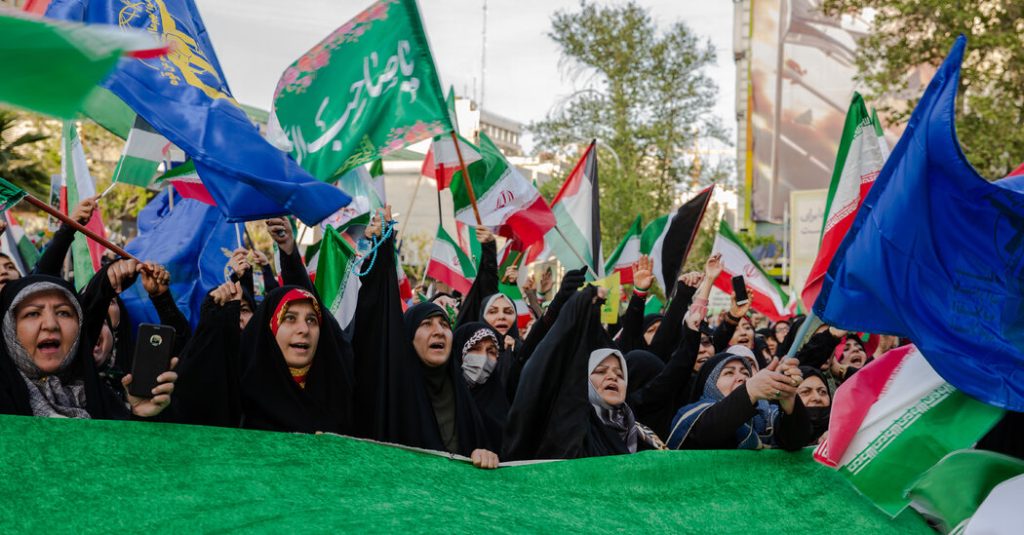In a recent statement, President Joe Biden reaffirmed the United States’ commitment to Israel’s security, following an attack that was successfully defeated with the help of international partners. The President also expressed the administration’s dedication to working towards a resolution that would bring an end to the conflict in Gaza, secure the release of hostages, and prevent further escalation of violence in the region. Secretary of State Antony Blinken has been engaging with various countries, including Britain, Egypt, Germany, Jordan, Saudi Arabia, and Turkey, to facilitate de-escalation efforts and prevent a wider regional war.
As Israel contemplates its next steps, Iran has issued warnings against further aggression. Iran’s Foreign Minister, Hossein Amir Abdollahian, stated that any attack on Iran would prompt an immediate response, particularly against American bases in the region. While emphasizing that Iran is not seeking to escalate tensions, he made it clear that certain actions by Israel or its allies could lead to retaliation. The international community, including Britain, has condemned Iran’s aggressive stance and pledged support for Israel in the face of potential threats.
In response to Iran’s warnings and escalating tensions, diplomatic efforts are underway to prevent further conflict. Prime Minister Rishi Sunak of Britain strongly criticized Iran’s actions as reckless and dangerous, highlighting the regime’s disruptive behavior in the region. While affirming support for Israel, he also emphasized the importance of de-escalation and peaceful resolution to the crisis. Collaboration with partners and allies is seen as essential in managing the situation and preventing a broader conflict that could have serious implications for regional stability.
The complexity of the situation underscores the need for careful and strategic decision-making by all parties involved. President Biden’s focus on working alongside partners and allies reflects a coordinated effort to address the crisis in a unified manner. While Israel retains sovereignty over its defense decisions, the international community plays a crucial role in advocating for de-escalation and restraint. The delicate balance between protecting interests and avoiding further conflict requires diplomacy, dialogue, and a commitment to peaceful resolution.
The ongoing dialogue between key stakeholders, including the United States, Britain, Iran, and Israel, underscores the interconnected nature of global security threats. As tensions continue to simmer in the region, the importance of communication and engagement remains paramount. By encouraging dialogue, promoting de-escalation, and seeking diplomatic solutions, the international community can help mitigate the risk of a broader conflict. President Biden’s reassurance of support for Israel and commitment to stability in the region demonstrates a proactive approach to addressing security challenges in a complex geopolitical landscape.
As the situation evolves, the focus remains on preventing further violence, securing the release of hostages, and promoting peace and stability in the region. Diplomatic channels are being utilized to facilitate dialogue and negotiation, with an emphasis on finding common ground and areas of cooperation. By engaging with all relevant parties in a constructive and respectful manner, the hope is to foster understanding, build trust, and ultimately pave the way for a lasting resolution to the conflict. Through sustained diplomatic efforts and a commitment to dialogue, there is a pathway towards de-escalation and ultimately, peace in a region fraught with longstanding tensions and ongoing challenges.








